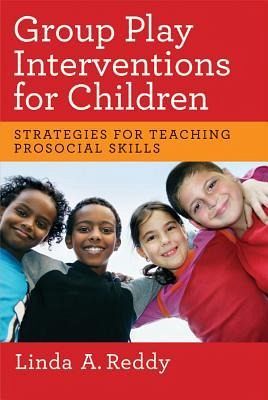
Group Play Interventions for Children
Strategies for Teaching Prosocial Skills
Versandkostenfrei!
Versandfertig in über 4 Wochen
47,99 €
inkl. MwSt.

PAYBACK Punkte
24 °P sammeln!
Group play interventions are used to meet a broad range of developmental needs in children from various backgrounds. This book is for mental health practitioners working with children aged 5 through 2 to help them learn important social skills and self-control strategies such as making friends, asking for and offering help, controlling hands and feet, using appropriate words, and managing stress and anger. Based on sound principles and research, this book integrates the use of group play interventions and evidence-based cognitive behavioral techniques in child group training. Step-by-step inst...
Group play interventions are used to meet a broad range of developmental needs in children from various backgrounds. This book is for mental health practitioners working with children aged 5 through 2 to help them learn important social skills and self-control strategies such as making friends, asking for and offering help, controlling hands and feet, using appropriate words, and managing stress and anger. Based on sound principles and research, this book integrates the use of group play interventions and evidence-based cognitive behavioral techniques in child group training. Step-by-step instructions are given for teaching, modeling, organizing, and coaching children through skill sequences and fun, developmentally appropriate games. Detailed lists of preparatory and follow-up actions are also provided, as well as tips on tailoring instruction to children's ages and special needs. Positive interactions are emphasized throughout the book, from parent interviews through implementation and questions for the children post-training.












